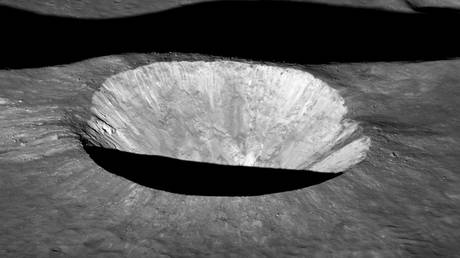
An out-of-control rocket expected to hit the Moon in early March wasn’t built by SpaceX, an astronomer has said
American astronomer Bill Gray, who earlier said that a stage from a SpaceX Falcon 9 rocket was going to hit the Moon on March 4, has admitted that he and his colleague have misidentified the object.
The honor of causing what appears to be the first-ever accidental lunar impact won’t go to Elon Musk, but to China, according to the scientist, who tracks asteroids and other objects sailing throughout the Solar System.
“I (mis)identified this object… We now have good evidence that it is actually 2014-065B, the booster for the Chang’e 5-T1 lunar mission,” Gray wrote in a correction that he posted in his blog on Saturday.
However, he assured that the Chinese rocket, which had been launched in October 2014, will “still hit the moon within a few kilometers of the predicted spot on March 4, 2022.”
Gray said he decided to take another look at the object after receiving an email from NASA’s Jet Propulsion Laboratory engineer, Jon Giorgini, who pointed out that it most likely couldn’t have been a part of Falcon 9.
According to Giorgini, the SpaceX rocket’s trajectory hadn’t taken it anywhere particularly close to the Moon, while it was also very unusual for a booster to end up so far away from the spacecraft.
For years, astronomers believed the piece of space junk tumbling at a chaotic orbit in the Earth-Moon system to be a part of the Falcon 9 spacecraft, which had been launched in February 2015 as part of SpaceX’s mission to send up the National Oceanic and Atmospheric Administration’s ‘Deep Space Climate Observatory’ satellite.
“So if this isn’t the SpaceX booster you thought it was, where is the SpaceX booster?” Gray wondered.
According to the astronomer, nobody knew the answer to that question. “I don’t think SpaceX knows. If they did, they could have raised their hand in the last couple of weeks and said: ‘That’s not our rocket stage hitting the moon.’”
Space junk should be tracked more thoroughly on an international level because “many more spacecraft are now going into high orbits, and some of them will be taking crews to the moon. Such junk will no longer be merely an annoyance to a small group of astronomers,” he warned.




